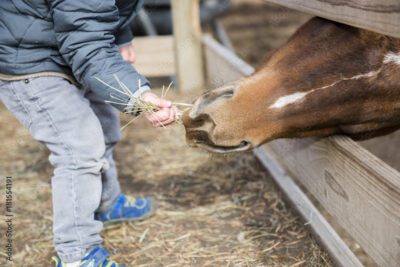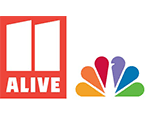By Christine Denise
Autism Mom and Contributing Writer for As You Are, a virtual clinic dramatically increasing access to early autism diagnostic services through the use of exclusively telehealth appointments
Old Habits
“Finally a place where you never have to say I’m sorry.”
I read those words on March 12, 2022.
They were stenciled in red letters across a canary yellow wall inside a place called “We Rock the Spectrum,” where special needs kids and their typical peers can play together in a giant sensory-friendly room.
Think of those trampoline parks, and this place is like one of those – but instead of trampolines, there is every kind of occupational therapy-type of swing and jumping apparatus you could imagine.
The day I read those words, I was having a birthday party for my son, who has autism.
He was turning 8.
I realized in that moment I had been saying “I’m sorry,” a lot during the past eight years.
Every time we would go to the park in front of our house and he would run up to a little girl with long hair and pull it because he doesn’t know how to say hello.
Every time we would go to one of my neurotypical son’s soccer games and he would help himself to a stranger’s food or drink when I wasn’t looking for that one second because he doesn’t know about germs.
Every time he would hug, pinch or hit a stranger because he doesn’t know how else to get their attention.
Every time he would splash someone in a pool or jump extremely close to them because for him, water is life regardless of who is in it.
Every time he would get into food left out at someone else’s house because the only way he knows how to eat is with his hands and doesn’t know how to ask for it.
I could go on, but you get the picture.
Changing My Ways
When I read those words, I stood there frozen for a while as those moments flashed through my mind and I realized how often I had said those words.
I looked around.
None of the children I invited from his class came. Only his teachers and therapists and their neurotypical kids. It didn’t surprise me. The public school he attends only has four other kiddos in his class, and it is very likely they never got the invites to their parents. And, if they did, their parents had no way of getting them to the party as most of them work multiple jobs just to make ends meet. (That’s another topic for another blog.)
I saw Louie inappropriately trying to get onto a swing even though another child was already on it.
I saw him pull his babysitter’s beautiful long hair.
I saw him try to take a drink of his teacher’s water, and then her son’s juice box.
And I didn’t say it.
I didn’t say I was sorry.
What I Say Instead
It was truly a safe space, where everyone understood Louie wasn’t going to make the same choices as most kiddos his age do.
And for those few moments, it felt great not to say “I’m sorry” for whatever action he did.
I made a choice that day to stop apologizing for my son’s disability as my first reaction every time he does something different because of his autism.
Whether right or wrong, I now just tell people in those situations, my son has autism, and he’s pulling someone’s hair because he doesn’t know how to say hello.
I tell people my son is autistic after he tries to help himself to their food or drink because he doesn’t know about germs.
I tell people my son is autistic, and we are working on learning how to get someone’s attention by saying “Hi,” instead of pinching or hitting them. (His speech therapist loves this one because I then follow up by telling him not to hit or pinch and prompt him to say “Hi” as much as possible before an interaction takes place.)
I tell people he’s autistic, and he loves to splash and jump in the water because all he can think about is experiencing his favorite sensation regardless of who is in it or where they are.
I tell people he’s autistic, and he only knows how to eat with his hands so we might have a mess to clean up if there is food left out.
Saying my son has autism instead of saying “I’m sorry,” is how I have chosen to cope.
It might not be right for everyone.
I have a dear friend whose son is high-functioning autistic. She didn’t tell me for a year following his diagnosis because she said she couldn’t even bring herself to say the word autism.
But for me, this is where I’m at in this journey.
And, I’m not sorry.
Do you have questions about your child’s development? The team at As You Are provides useful autism screening and diagnostic evaluations for kids 16 months to 10 years old via telehealth appointments.
Disclaimer: I am not a medical professional. This is a sponsored blog post, but all opinions are my own.


















